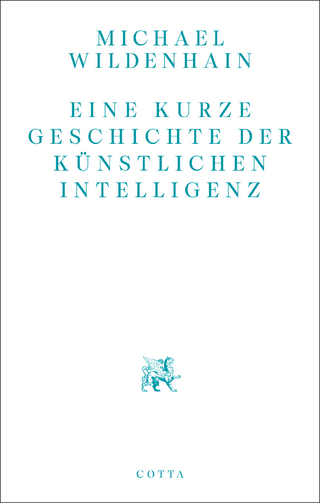
To the Digital Age
Johns Hopkins University Press (Verlag)
978-0-8018-6809-2 (ISBN)
- Titel z.Zt. nicht lieferbar
- Versandkostenfrei innerhalb Deutschlands
- Auch auf Rechnung
- Verfügbarkeit in der Filiale vor Ort prüfen
- Artikel merken
Bassett sheds substantial new light on the development of the integrated circuit, Moore's Law, the success of Silicon Valley start-ups as compared to vertically integrated East Coast firms, the development of the microprocessor, and IBM's multi-billion-dollar losses in the early 1990s. To the Digital Age offers a captivating account of the intricate R & D process behind a technological device that transformed modern society.
Ross Knox Bassett is an associate professor of history at North Carolina State University.
Acknowledgments
Introduction
1. How a Bad Idea Became Good (to Some): The Emergence of the MOS Transistor, 1945-1963
2. Back from the Frontier: IBM Research and the Formation of the LSI Program, 1951-1965
3. Development at Research: The Research Phase of IBM's MOS Program, 1963-1967
4. MOS in a Bipolar Company: Fairchild and the MOS Transistor, 1963-1968
5. It Takes an Industry: The MOS Community
6. The End of Research: Intel and the MOS Transistor, 1968-1975
7. IBM: MOS and the Visible Hand, 1967-1975
8. The Logic of MOS: Intel and the Microprocessor, 1968-1975
Conclusion/ Epilogue
Appendix 1: Organizational Charts
Appendix 2: Sources for Tables
Notes
Essay on Sources
Index
| Erscheint lt. Verlag | 26.6.2002 |
|---|---|
| Reihe/Serie | Johns Hopkins Studies in the History of Technology |
| Zusatzinfo | 26 Line drawings, black and white; 4 Halftones, black and white |
| Verlagsort | Baltimore, MD |
| Sprache | englisch |
| Maße | 152 x 229 mm |
| Gewicht | 658 g |
| Themenwelt | Geschichte ► Teilgebiete der Geschichte ► Technikgeschichte |
| Naturwissenschaften | |
| Technik ► Elektrotechnik / Energietechnik | |
| ISBN-10 | 0-8018-6809-2 / 0801868092 |
| ISBN-13 | 978-0-8018-6809-2 / 9780801868092 |
| Zustand | Neuware |
| Haben Sie eine Frage zum Produkt? |
aus dem Bereich


